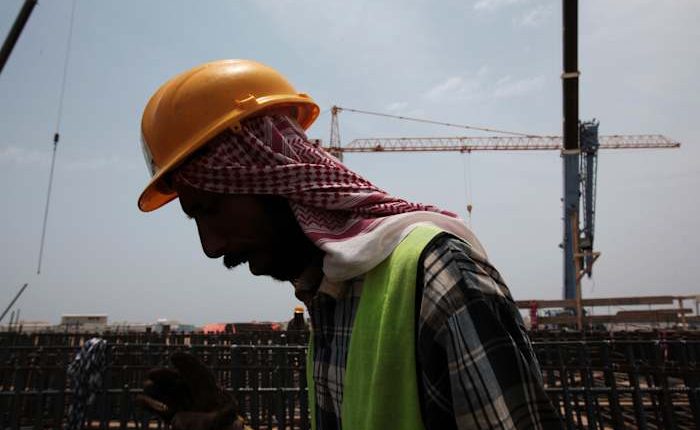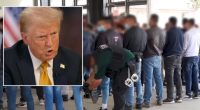Share this @internewscast.com

DUBAI – Numerous laborers from nations such as India, Bangladesh, and Nepal have experienced avoidable fatalities due to electrocution, road mishaps, and falls from heights while employed in Saudi Arabia, as highlighted by a report from the advocacy group Human Rights Watch on Wednesday.
An investigation released on Wednesday by Human Rights Watch, together with another by the rights group FairSquare, focused on the preventable deaths of migrant workers caused by workplace accidents and occupational illnesses.
These reports criticize Saudi officials for frequently misreporting these deaths and neglecting proper investigations, which hinders families from obtaining the compensation they deserve from the kingdom and from understanding the circumstances of their loved ones’ deaths.
As Saudi Arabia pushes ahead with hundreds of billions of dollars in infrastructure and development initiatives — including the 2034 men’s soccer World Cup and the futuristic city Neom — rights groups warn of thousands more avoidable deaths in the coming years.
In one case, Human Rights Watch said a Bangladeshi worker was electrocuted on the job. But his employer allegedly withheld the body, telling the family they would be compensated only if they agreed to a local burial.
Another family reported waiting nearly 15 years before they were compensated by the Saudi government.
“It’s very urgent that the Saudi authorities and FIFA put in place basic labor rights protections,” Minky Worden, Human Rights Watch’s director of global initiatives, told The Associated Press, referring to soccer’s world governing body.
Authorities in Saudi Arabia did not respond to a request for comment.
FairSquare, which looked into the deaths of 17 Nepali contractors in Saudi Arabia over the last 18 months, warned in its report that without accountability, “thousands of unexplained deaths” of low-paid foreign workers are likely to follow.
“In some cases, you have families being pursued by money lenders for the loans that their (dead) husband or father took out in order to migrate to the Gulf,” said James Lynch, who co-directs FairSquare.
Saudi Arabia has long faced allegations of labor abuses and wage theft tied to its Vision 2030 project, a big-money effort to diversify its economy beyond dependence on oil.
FIFA shared with the AP a letter it sent Human Rights Watch last month defending the selection of Saudi Arabia as host of the 2034 World Cup.
The letter cited the Saudis’ commitments to establishing “a workers’ welfare system” and enhancing “country-wide labor protections including through a strengthened collaboration” with the United Nations’ International Labor Organization.
The kingdom is not the only Gulf Arab state to be accused of abusing migrant laborers in the run-up to a World Cup. Rights groups also criticized Qatar, which hosted the competition in 2022, saying they tallied thousands of unexplained worker deaths.
But this time has the potential to be even worse for foreign workers, Worden said, noting that the 2034 World Cup has plans to require more stadiums and infrastructure with more teams competing.
Qatar established an oversight board called the Supreme Committee, which monitored FIFA construction sites and took reports of unsafe work conditions.
“There’s no such committee like that in Saudi Arabia,” Worden said, adding, “In the end, Qatar did have concrete policies like life insurance and heat protection. Those aren’t in place now” in Saudi Arabia.
The details of the investigations from Human Rights Watch and FairSquare come a day after FIFA President Gianni Infantino joined U.S. President Donald Trump on his official visit to Saudi Arabia, where Trump met with Saudi Arabia’s de facto ruler Crown Prince Mohammed bin Salman.
Copyright 2025 The Associated Press. All rights reserved. This material may not be published, broadcast, rewritten or redistributed without permission.











